Who killed Anita Byington? 1991 case revisited as Allen Andre Causey seeks exoneration.
Editor's note: This story has been updated to show that Anita Byington was last seen with Kevin Harris in her car. A previous version of this story misstated where the two were last seen together.
ELGIN — In August 1991, Anita Byington was 21. She was about to begin her senior year studying elementary education at what was then Southwest Texas State University in San Marcos.
The night of Aug. 10, 1991, she went out with a group to bars on Sixth Street. She was last seen with an acquaintance in her gold Honda Accord.
Early the next morning, her body was found in a grassy area at the Spring Creek Apartments in East Austin. Police theorized she had been beaten and then killed with a concrete rain diverter. She was the second woman in a little more than a month to be killed after leaving an Austin bar.
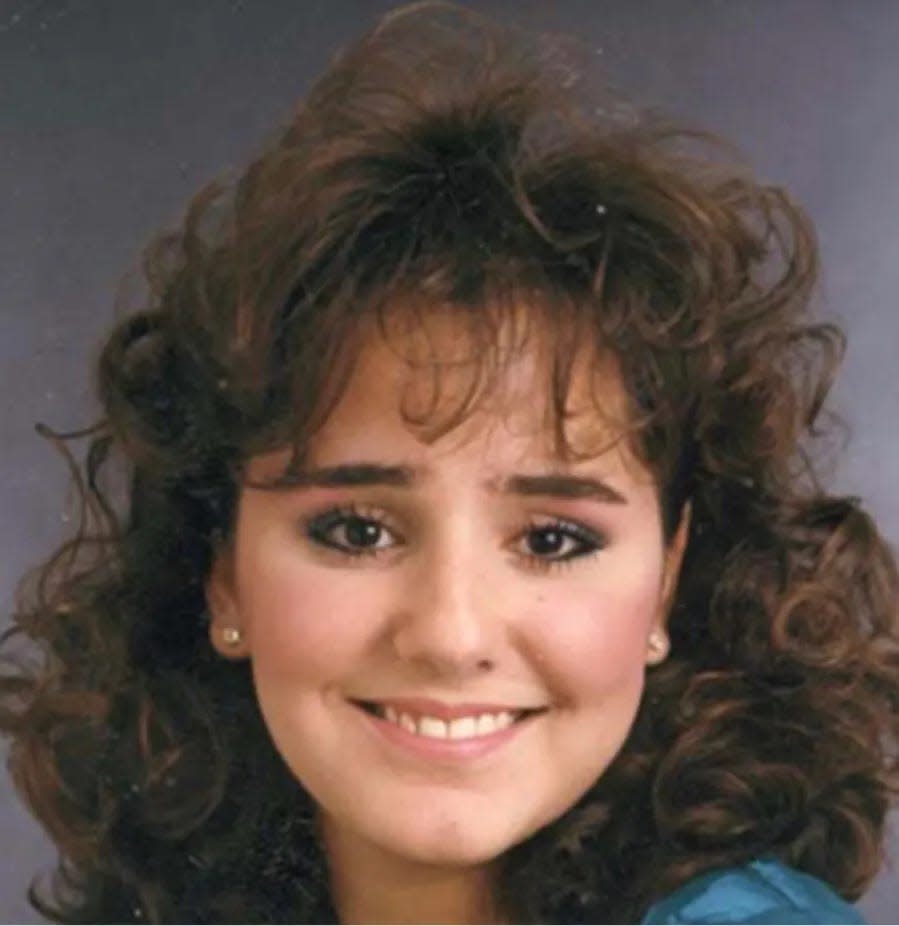
Two days later, police brought in a young Black man named Allen Andre Causey for questioning. He wasn’t initially a suspect, but, by the end of a several-hours-long interview, Causey had signed a three-page statement confessing to Anita’s murder.
The statement is at the center of an exoneration case now before a Travis County state District Court. Causey, who spent 30 years in prison, says that he never confessed to Byington’s murder and was wrongfully convicted.
The Innocence Project of Texas, which now represents Causey, and the Travis County district attorney’s Conviction Integrity Unit argue that Causey’s confession is just one instance of a troubled homicide unit’s pattern of misconduct. Last year, the district attorney's office and the Innocence Project of Texas received a federal grant to review the Austin Police Department's homicide cases from 1985 to 1995, particularly with regards to interrogation practices.
District Judge Chanel Eldridge has already recommended that the Texas Court of Criminal Appeals vacate Causey’s conviction. The district attorney’s office and Causey’s lawyers are hoping that Eldridge will further recommend a finding of “actual innocence” after the hearings conclude.
"After a thorough investigation that included interviewing scores of civilian, law enforcement, and expert witnesses along with the review of thousands of pages of documents, it is clear that Allen Andre Causey is innocent and was falsely convicted of murder," Ismael Martinez, a spokesperson for the district attorney's office, said in an email.
But Anita Byington’s cousin, Kristina, has accused the district attorney’s office of failing to properly investigate Causey’s claim of innocence. Kristina Byington is represented by Terry Keel, who prosecuted Causey in 1992 and went on to have a controversial tenure as Travis County sheriff.
The proceedings have dredged up decades of contested Austin history and could potentially lead to another arrest in Anita Byington’s homicide.
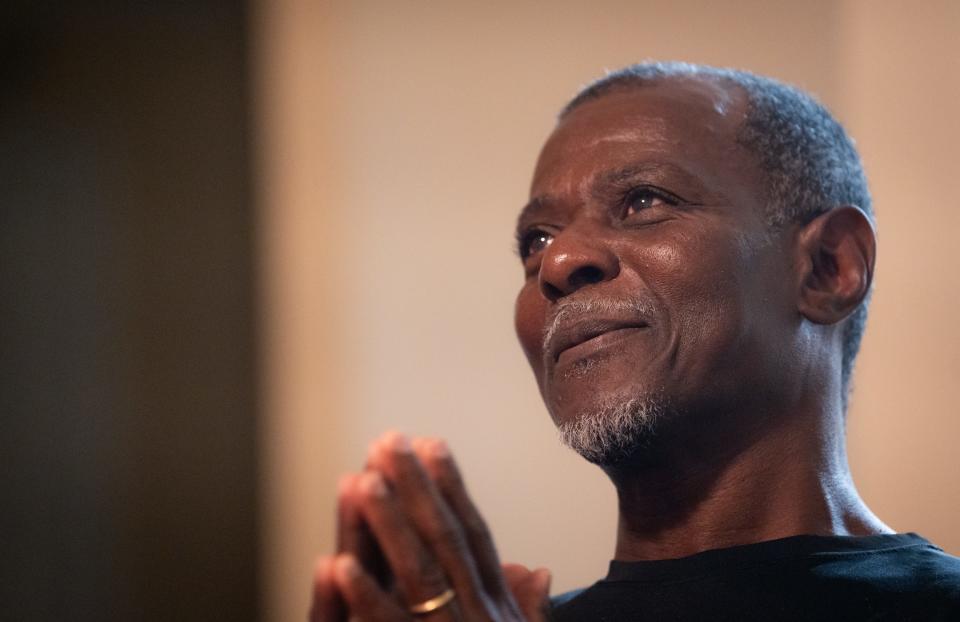
How Allen Andre Causey was implicated in Anita Byington's killing
In August 1991, Causey — who goes by Andre — was 26. He worked at a landscaping company and lived part time with his girlfriend, Dellanda Harrell. They had met as teenagers and were “building something serious,” Causey said in an interview with the American-Statesman.
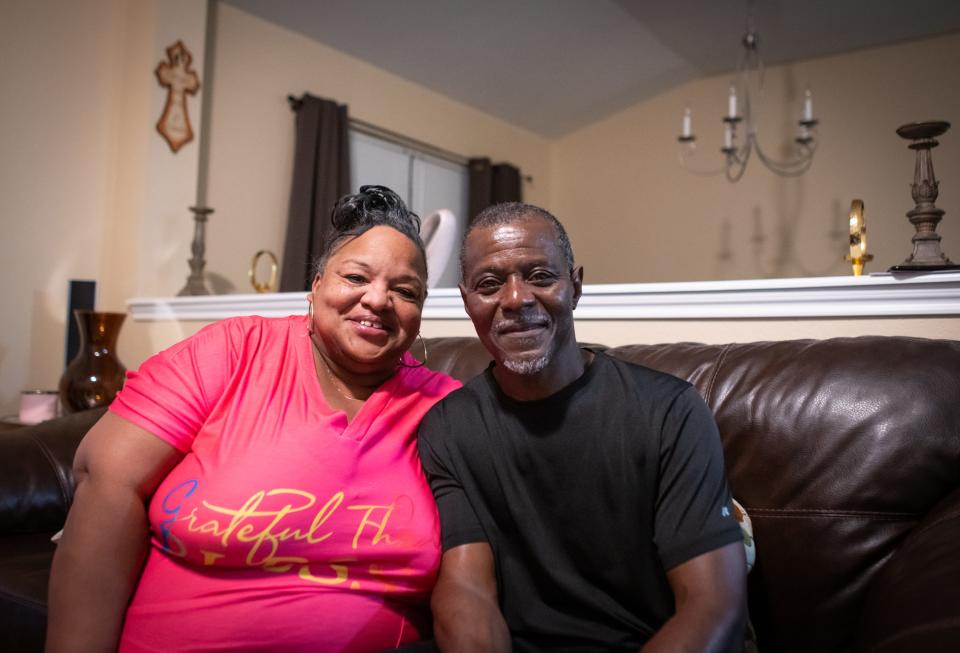
Dellanda Harrell's brother, Bobby, was Causey's alibi — Causey told police that the night of Aug. 10, he and Bobby Harrell were at an acquaintance's apartment in Spring Creek.
Police also asked Bobby Harrell to come in for questioning, but he never admitted any wrongdoing. In court filings, Causey's lawyers have argued that Causey’s statement was the only piece of evidence tying both Causey and Bobby Harrell to the crime. Though Bobby Harrell was indicted, the case against him was eventually dismissed.
1992 trial against Causey
Throughout pretrial hearings, the July 1992 trial and current proceedings, Causey has maintained that the written confession he signed was fabricated by police. The district attorney’s office says that Causey’s allegations of police misconduct are corroborated by a 1992-93 investigation into the homicide unit’s “coercive interrogation practices.”
During the trial, Causey testified that he never confessed, and he thought the statement he signed was an acknowledgment that police had read him his rights and had not “beat him.”
On the stand, he said that he signed the document without reading it because he “can barely read.”
A recent evaluation of Causey’s IQ estimated that it was 66, which the Merck Manual medical reference categorizes as a “mild” intellectual disability.
During the trial, Causey described being threatened by the homicide unit’s supervisor, Hector Polanco, with lethal injection, life imprisonment and jailhouse rape.
Homicide Sgt. Michael Huckabay and Polanco testified to witnessing Causey confess to the murder. Polanco denied all claims that he had threatened Causey.
But, today, the district attorney’s office says the homicide unit had a known culture of intimidation and coercion. From 1992 to 1993, the district attorney’s office and the Police Department conducted a joint investigation into the homicide unit’s interrogation practices.
Four false confessions were known to investigators at the time of Causey’s trial. Most notably, Huckabay and Polanco had taken a false confession from Alex Briones to Austin's infamous 1991 yogurt shop murders.
Causey’s defense attorney at the time, Michael Etchison, repeatedly tried to get prosecutors to turn over any information they had about police misconduct, particularly regarding interrogations.
In a recent motion, Eldridge, the judge, found that the district attorney’s office had information that would have been useful to Causey’s defense and did not disclose it, which was a violation of Causey’s right to due process.
Keel, the prosecutor, insisted in an email that information about Polanco’s interrogation tactics was disclosed to Causey’s lawyer during the trial.
Another suspect emerges in Anita Byington's murder
During a January 2024 hearing, prosecutors argued that there was a plausible alternative suspect in Byington’s death, whom police had already investigated.
They pointed to Kevin Harris, the acquaintance last seen with Anita Byington in her car.
Investigators initially suspected Harris, who told conflicting stories about that night and had an injury on his arm. Harris testified during Causey’s trial, admitting that he had consensual sex with Anita Byington that night but denying that he killed her.
Prosecutors say that there are new witnesses who suggest Harris was involved in the slaying. In court filings, they also claim that further DNA analysis has been done that implicates Harris and excludes Causey.
The Police Department confirmed by email that the cold case unit is investigating Harris in Byington’s death.
Letitia Hollins, who is also representing Harris in a pending sexual assault case in Harris County, said he has “maintained his innocence for 30 years.”
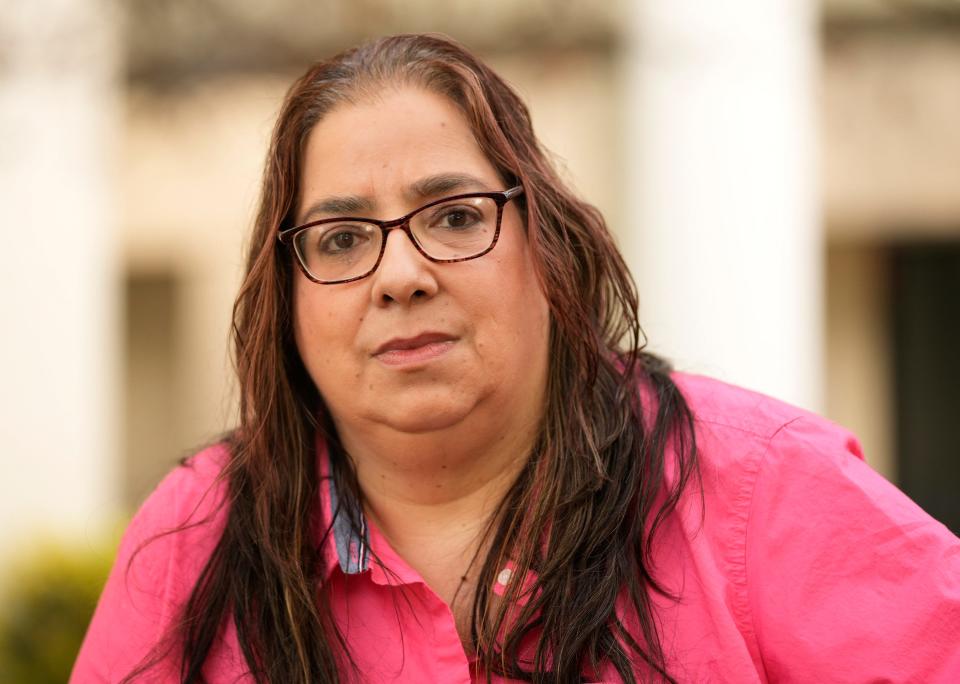
Anita Byington's cousin maintains that Causey is guilty
Since Kristina Byington found out about Causey’s exoneration effort, contesting it has consumed her life. She has “100% focus” on it, she said in a text message. Earlier this month, she got a large, colorful tattoo on her arm, commemorating Anita Byington.
The two were first cousins but were “more like sisters,” Kristina Byington said. Anita Byington’s parents, Alfredo and Sarah, are now dead, and Kristina Byington thinks of herself as the closest surviving family member.
For the past several months, Kristina Byington has sparred, both publicly and privately, with the district attorney’s office, which she feels has neglected to treat her with the respect she deserves. She has described, in court and in multiple media outlets, finding out about the exoneration effort through a witness in the case.
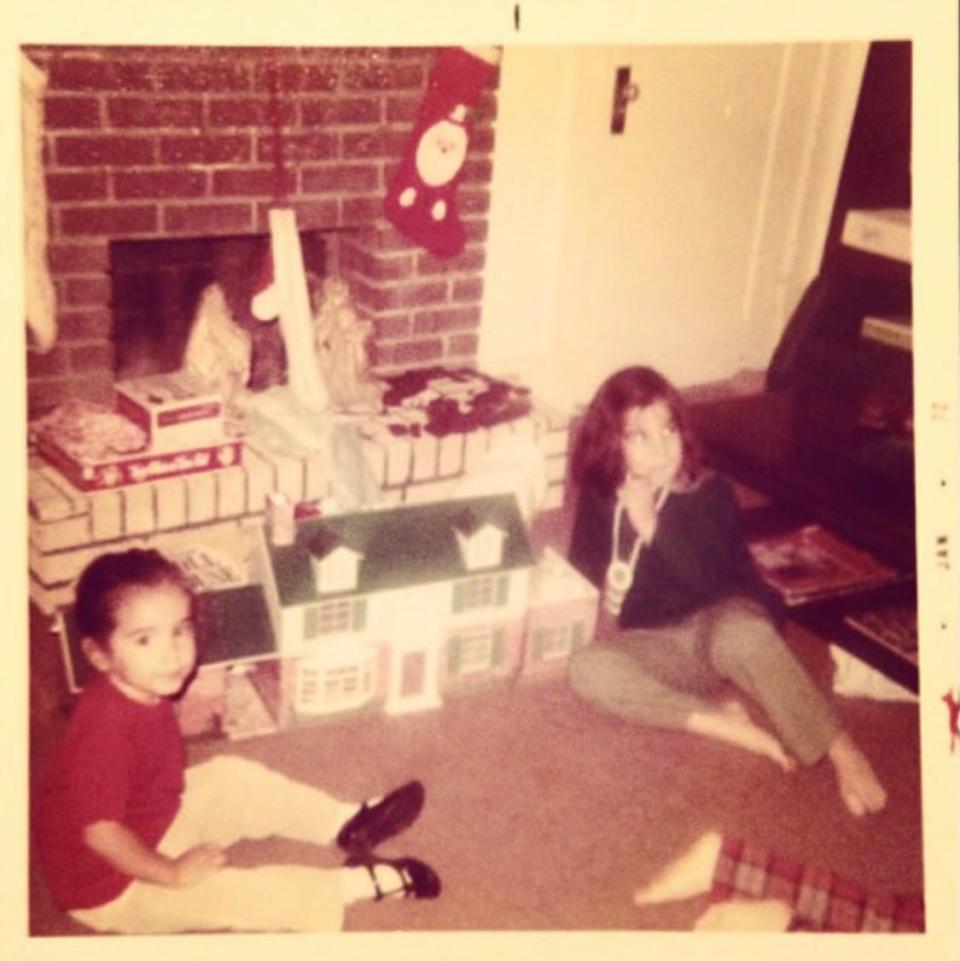
In a court motion, the district attorney’s office claimed that it was initially only aware of one of Anita Byington’s cousins, who was a witness in the original case. (She declined to be interviewed for this article.) The office says that since becoming aware of Kristina Byington, it has attempted to keep her updated — a claim she has vigorously contested.
She also accused Travis County District Attorney José Garza of using the case as a "means of political gain."
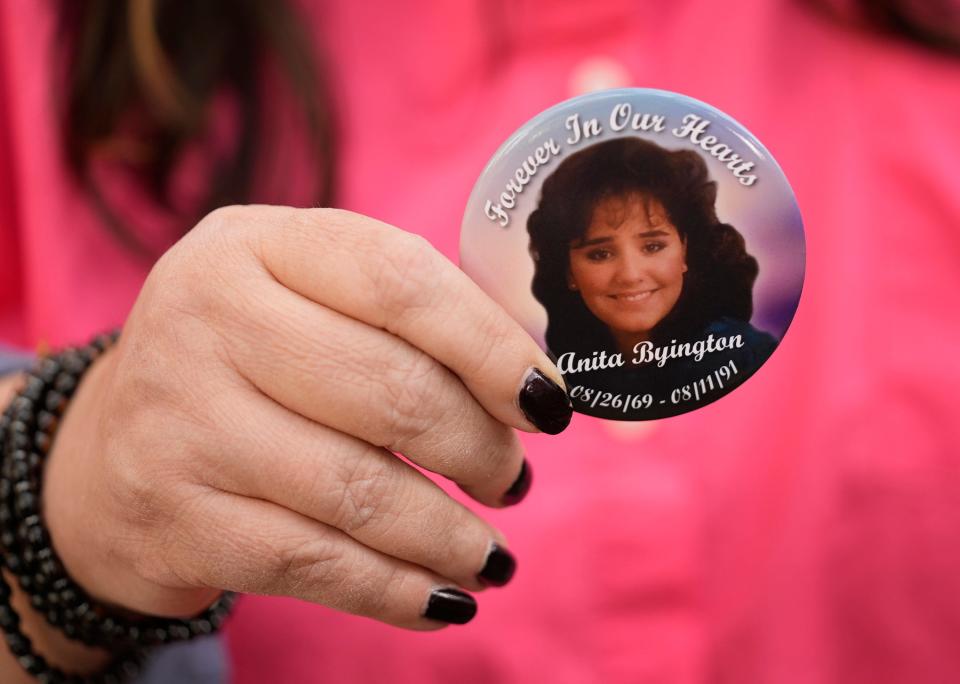
In a court document he filed on behalf of Kristina Byington, Keel questioned the integrity of the proceedings, claiming that the district attorney’s office “has selectively assembled its 2023 evidence in favor of one outcome, in partnership with the defendant's attorneys.”
In a response, the district attorney’s office argued that its actions have been consistent with its obligation “to see that justice is done.”
Causey's life after prison
Andre Causey spent 30 years in prison.
He stayed out of trouble, earned a GED diploma and worked in a series of manual labor jobs. He rediscovered his relationship with God. He kept in touch with Dellanda Harrell, who “always” made sure he had a visitor, even when he was transferred to prisons several hours from Austin.
Causey and Dellanda Harrell had a courthouse wedding in 2000. Getting married allowed them to have “contact visits” in prison — so they could hug, briefly, at the beginning and end of each visit.
In 2022, Causey’s mother, Yvonne, died in Louisiana. After he got the news, in a five-minute phone call, he said, “I just looked up and I remember saying, ‘Lord, I guess now you’ll let me go home.’”
After 15 attempts at parole, Causey was released in October 2022. Now, he lives with Dellanda Harrell in Elgin and works at a warehouse.
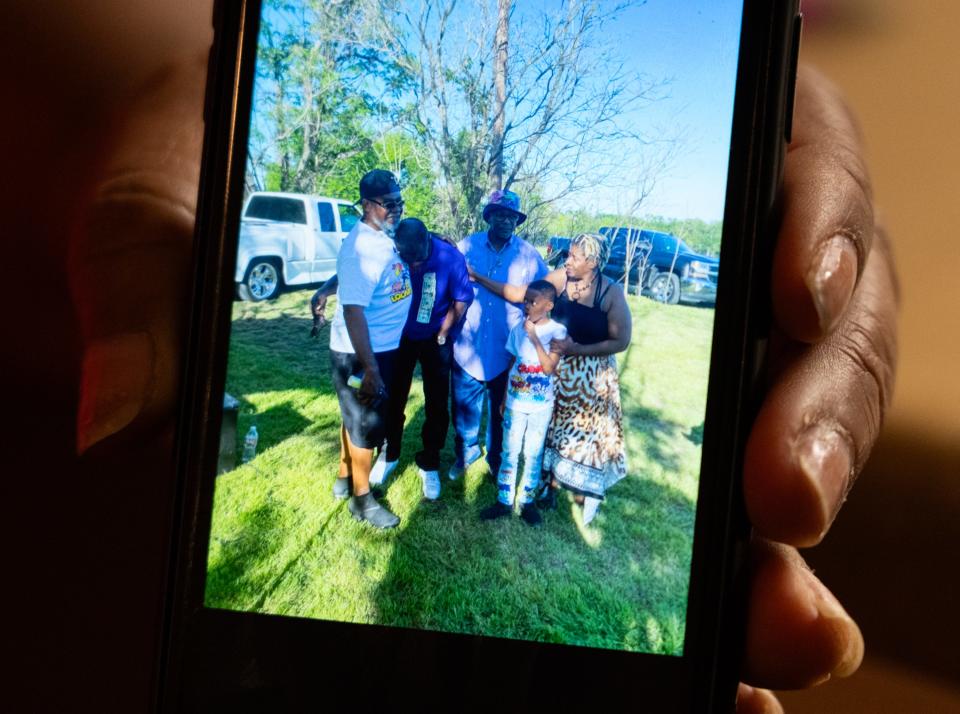
They renewed their vows in June 2023, exactly 23 years after their first wedding.
It has been a long process, pursuing exoneration. He first reached out to the Innocence Project of Texas in January 2019. The current hearings will last for a few more months, and then the Court of Criminal Appeals will take it up.
When asked why he’s going through an arduous legal battle, Causey’s answer was very simple: “I’m innocent.”
This article originally appeared on Austin American-Statesman: Austin man convicted in 1991 murder of Anita Byington seeks exoneration

